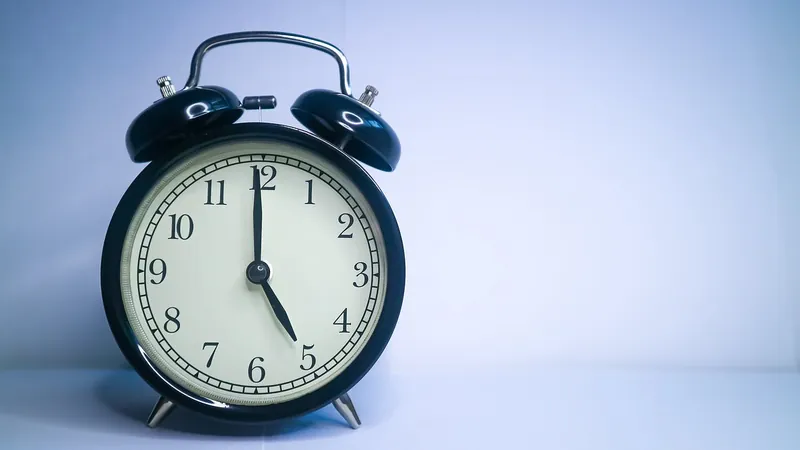
Test Your Grip: It Could Predict Your Lifespan!
2025-03-24
Author: Ying
Introduction
A groundbreaking one-minute test has emerged that could give you a startling indication of your likelihood to live a long life. Experts are suggesting that grip strength may be the key to understanding your overall health and potential longevity.
The Connection Between Grip Strength and Longevity
The grip test measures the force with which someone can squeeze an object – and it’s not just for gym buffs. It’s believed that strong grip strength is linked to a lower risk of developing numerous age-related health issues, including heart disease, type 2 diabetes, arthritis, and even certain cancers. This connection is largely because grip strength engages various muscles and joints throughout the arm, indicating an overall level of physical fitness.
Expert Opinions
Health expert Ed Jones has shared that grip strength serves as a "marker for how everything else will weaken" in the body. He argues that if you can't hold a weight equal to three-quarters of your body weight for a minute, it suggests you may be at a greater risk for premature death compared to those who are stronger. Remarkably, grip strength has been identified as a more accurate predictor of longevity than traditional markers like cholesterol levels.
How to Perform the Grip Test
To perform the test, grip a heavy object—preferably a dumbbell—approximately three-quarters of your body weight for 60 seconds. For example, average British males should aim for about 85 kg, while females should target 54 kg. However, lifting such heavy weights can be risky; it’s recommended that men lift no more than 25 kg and women no more than 15 kg, as per the Health and Safety Executive guidelines. Alternatively, hanging from a pull-up bar can also be a safer measure of grip strength: men should aim for 60 seconds while women should target 30 seconds. Research indicates that those who can hang for less than these durations may face a heightened risk of early mortality.
Studies Supporting Grip Strength Assessment
Grip strength assessments have long been used to forecast health risks such as cardiovascular diseases and even dementia. A staggering 2016 study from University College London involving nearly 7,000 participants found that weaker grip strength at the beginning of a 17-year study correlated with higher-than-average cases of premature death from all causes. Another comprehensive analysis involving almost 140,000 individuals established grip strength as a more precise marker for early death than high blood pressure.
Improving Grip Strength
What can you do if your grip strength isn't up to par? Health professionals suggest incorporating exercises to strengthen your hands and arms. Various gadgets designed for grip enhancement can be beneficial, with just a minute of daily use showing promising results.
The Importance of Balance
In addition to grip strength, maintaining your balance is another vital indicator of longevity. Recent studies show that individuals who cannot balance on one leg for over ten seconds are at an increased risk of dying within a decade. Age plays a significant role in balancing expectations; for instance, 18 to 39-year-olds are encouraged to balance for at least 43 seconds, while those aged 70 to 79 should aim for about 18 to 19 seconds. Balancing not only tests physical strength but also engages numerous parts of the brain, as declining balance capabilities can lead to more frequent falls and injuries.
Conclusion
So, why wait? Grab a weight and test your grip! Improving your strength and balance could be the key to unlocking a longer, healthier life.


 Brasil (PT)
Brasil (PT)
 Canada (EN)
Canada (EN)
 Chile (ES)
Chile (ES)
 Česko (CS)
Česko (CS)
 대한민국 (KO)
대한민국 (KO)
 España (ES)
España (ES)
 France (FR)
France (FR)
 Hong Kong (EN)
Hong Kong (EN)
 Italia (IT)
Italia (IT)
 日本 (JA)
日本 (JA)
 Magyarország (HU)
Magyarország (HU)
 Norge (NO)
Norge (NO)
 Polska (PL)
Polska (PL)
 Schweiz (DE)
Schweiz (DE)
 Singapore (EN)
Singapore (EN)
 Sverige (SV)
Sverige (SV)
 Suomi (FI)
Suomi (FI)
 Türkiye (TR)
Türkiye (TR)
 الإمارات العربية المتحدة (AR)
الإمارات العربية المتحدة (AR)